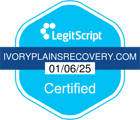Starting an addiction rehabilitation program is often overwhelming, especially if you’re in detoxification before moving on to your initial treatment phase. What helps is when you know what to expect and why. For example, you might hear the phrase “continuum of care plan” but not be sure of how it applies to you. Let’s go through it step by step.
Understanding an Addiction Rehab Continuum of Care Plan
A continuum of care plan is a comprehensive, long-term treatment approach that provides a range of services and support systems to individuals struggling with substance use disorder (SUD) and alcohol use disorder (AUD), as well as any co-occurring mental health disorders. This approach ensures that you or a loved one receives continuous and consistent care tailored to your evolving needs throughout your recovery journey—not only upon entering a rehab facility, but also when you venture back into life outside of active treatment.
Some studies suggest that the continuum of care “of longer duration that includes more active efforts to keep patients engaged may produce more consistently positive results. Moreover, patients at higher risk for relapse may benefit to a greater degree from continuing care.”
Your addiction specialists should work as a cohesive unit to develop the key components of your continuum of care plan. While these factors are always unique to each person, here’s a likely outline:
Intake Assessment
You’ll receive a thorough evaluation to determine the severity of your SUD or AUD, and identify co-occurring disorders and individual needs.
Detoxification
Many people find it challenging to focus on the detailed work of recovery without first going through detox to rid the body and mind of toxic substances. At Ivory Plains, our detox program is doctor-managed and supervised 24/7 by licensed nurses and support staff to safely manage withdrawal symptoms.
Inpatient or Residential Treatment
If your assessment supports this approach, expect intensive, structured treatment in a live-in facility, providing 24-hour support, therapy, and medical care.
Partial Hospitalization Program (PHP)
It’s also possible that depending on the nature of your condition, you may benefit from day treatment programs where you’ll receive concentrated therapy and support during the day but return home at night.
Intensive Outpatient Program (IOP)
All too often, people put off critical treatment due to family or employment obligations, or they find going away to rehab challenging in other ways. So, another option in your continuum of care plan might be attending professional treatment sessions several times a week, which allows you to uphold essential commitments while receiving focused therapy and support.
Outpatient Treatment
This approach includes regular therapy and group counseling sessions, typically once or twice a week, to bolster continued recovery and address any particular issues. Your case managers will alter these methods as necessary, depending on your needs and progress.
Aftercare and Relapse Prevention
This is a vital component of your recovery success. Ongoing support and resources, such as interactive facility alumni programs, help you maintain sobriety. Your plan might recommend 12-Step and other mutual aid support groups, therapy, and regular check-ins with treatment providers.
Sober Living Homes
Transitional living environments provide a structured and nurturing community for individuals who complete primary treatment but need additional guidance before fully reintegrating into their regular lives.
Case Management and Support Services
This factor of your plan involves the coordination of care to ensure you have access to necessary resources, such as medical care, mental health services, employment support, and housing assistance.
Family Involvement and Therapy
It’s often critical to your recovery goals to engage family members in the treatment process to address family dynamics, improve communication, and provide a supportive environment for the individual’s recovery. While this isn’t always possible, it’s something our addiction specialists often suggest if there’s an opportunity.
So think of your continuum of care plan as a blueprint that allows for a seamless transition between different levels of care as you progress through recovery. It’s a “living document”: as your status evolves, it’s something that can be modified as needed to ensure you have whatever is necessary to ultimately achieve long-term sobriety and an improved quality of life.
Get the Quality Care You Deserve at Ivory Plains
At our addiction rehabilitation program in Adair, Iowa, our board-certified professionals are dedicated to your success and rely on various evidence-based and holistic methods to give you the right tools to build your path to wellness. Our entire staff is committed to fostering an environment that’s safe, secure, and non-judgmental as you work on healing, self-forgiveness, resiliency, and trauma recovery. Through our collaborative efforts you can expect to live a life free from substances and once again truly experience joy, happiness, and purpose. If you’re ready to create a life of recovery, talk to a member of our admissions team about how we can help you.








